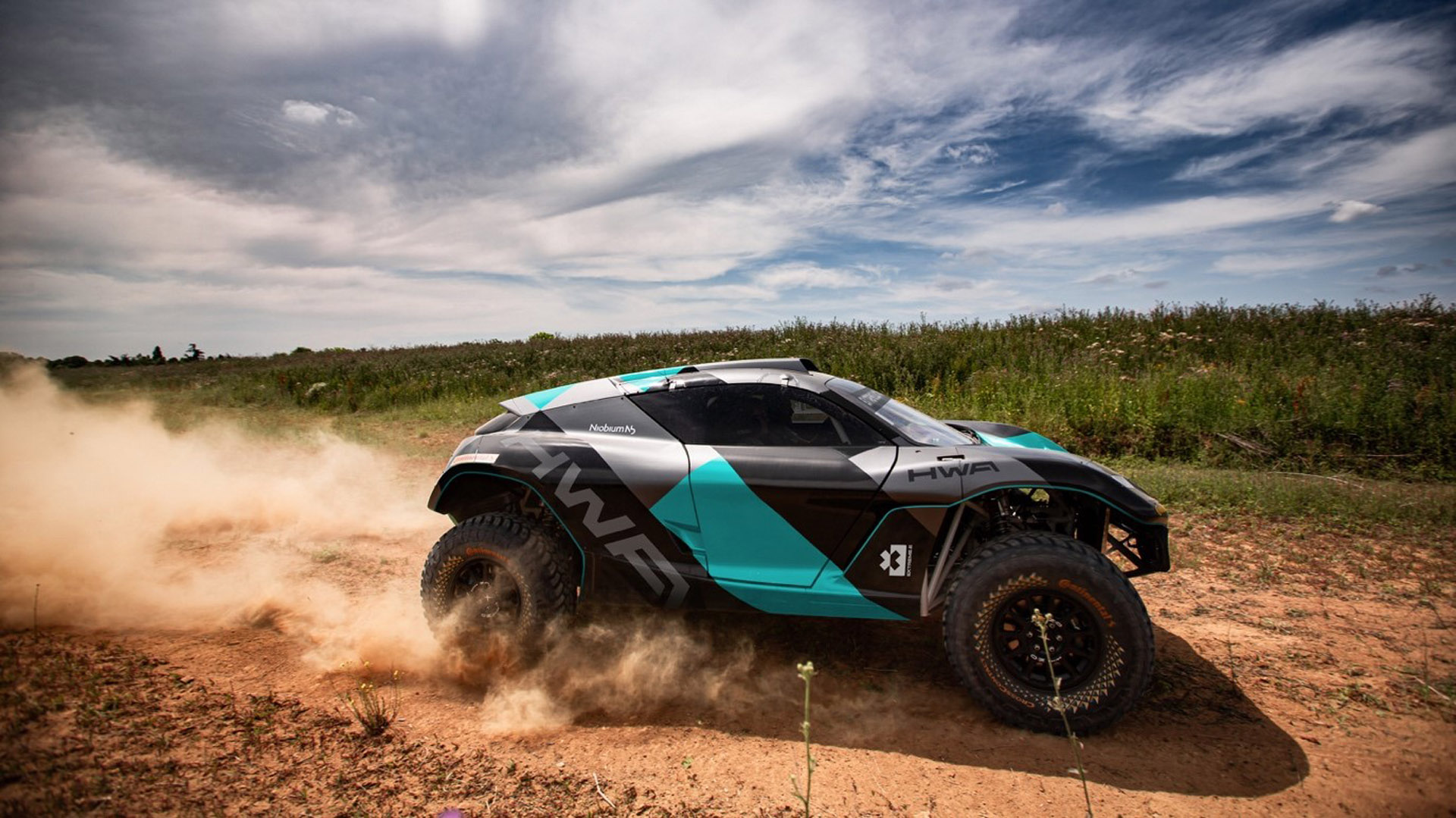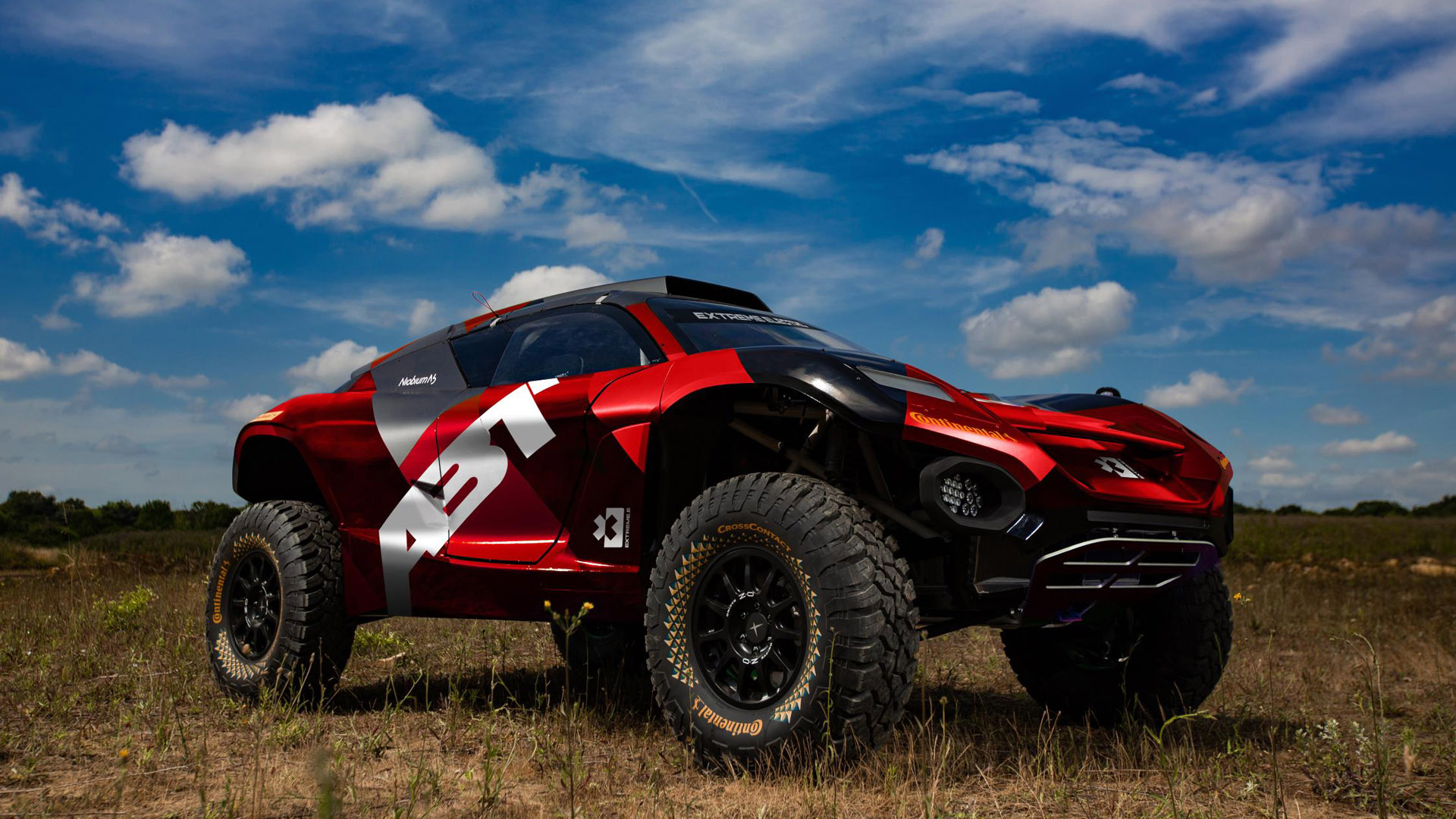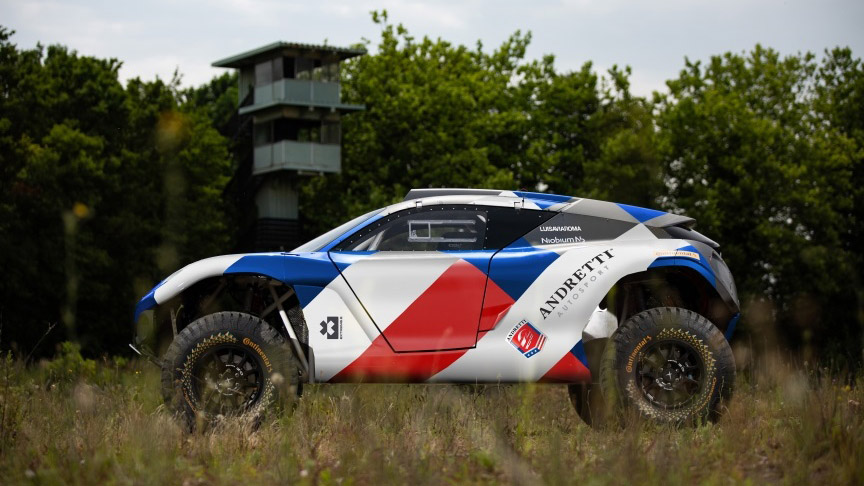On 21 April, TotallyEV was invited to an ‘Earth Day eMasterclass’, which saw numerous individuals involved with Extreme E, the all-electric off-road racing series, discuss how sport can be used to raise awareness of the ill-effects of climate change.
The hour-long session that was hosted on iSportConnect can now be viewed on Extreme E’s YouTube channel. The session saw Alejandro Agag CEO of Extreme E; Jean-Eric Vergne, the two-time Formula E Champion and co-founder of Veloce Racing; Dr Lucy Woodall the Principal Scientist at Nekton and Extreme E’s Ocean Scientist; Rodrigo Barjas Amado Head of Strategy & New Business Development at CBMM; and Orla Chennaoui a sports broadcaster and presenter, discuss how the entire automotive and motorsport industry are both shifting their attention to electrified vehicles, and how sports can be used as a platform to raise awareness of climate change.
In this feature, we’ll explore some of these topics and further, look into the current limitations and complications faced by manufacturers around the globe as they move toward a greener future.
Read next: Extreme E: The electric off-road racing series
Consumer trends: How are EVs doing?
The global market share for electric vehicles has been on the rise; the biggest leap happened in 2018, where the electrified vehicle segment grew to 2.1% up by 1.3% from the previous year. The same was expected in 2019, but the figure was halved. In 2020, the entire car market has been hit by the ill-effects of the coronavirus, as such, the year that was supposed to take EVs to new heights has been put on hold.
Despite the setback, governments across the globe have been shifting their focus toward more sustainable vehicles – from pumping millions into the charging infrastructure to providing public and private sector customers with better incentives.
Buy a car phone mount on Amazon (Affiliate)
As such, in March 2020, alternative fuelled vehicles (AFVs) saw a 10% rise over last year’s figures; diesel cars dropped from 31% to 27% and petrol-based vehicles sat at 55% down from 60% in March 2019.
On the whole, EVs are on the up and are set to become even more popular than ever before. Almost every manufacturer in the world has an electrified model in their range; some have even shifted their focus on all-electric vehicles, only. As a result, in the coming years, we’ll see hybrid and electric vehicles surpassing petrol and diesel sales.
Read next: JATO Dynamics: Global vehicle sales fall by 39% in March
How can sport raise awareness of climate change?
In the Earth Day eMasterclass, Extreme E was the topic of discussion. Truly, it’s the first of its kind. It’s more than just a sport, whereby the founder Alejandro Agag wants to highlight the impact that global warming has on the environment. As such, races take place in remote locations across the world where climate change has hit the hardest. If you’d like to know more about Extreme E, read our dedicated article on the electric off-road racing series, here.
Extreme E itself raises awareness by how it’s been laid out from the get-go. Unfortunately, other sports aren’t quite as geared toward climate change – think of football, rugby, cricket, basketball or even eSports. How can these sports raise awareness? Truthfully, unlike motorsports, these activities don’t fundamentally burn fossil fuels. However, everything that helps facilitate these sports does play a key role in global warming.
For example, teams travel to numerous countries and locations, whereby greener transport would leave less of a carbon footprint. Equally, event organisers can dramatically reduce plastic and food waste. So, while these sports might not directly impact the environment, unlike those who partake in gas-guzzling motorsports, they do all play a pivotal role in raising awareness; they can set the example. In November 2019, Formula 1 even announced its plans to be Net Zero by 2030.
There are indeed plenty of ways that sports can be used as a tool to raise awareness of climate change – even if the sport itself doesn’t promote the use of gas-guzzling engines.
Read next: Formula E: Everything you need to know including the race calendar
What problems lie ahead for Extreme E?
The motorsport that’s been designed to promote a call-for-action for viewers and the rest of the industry in minimising their carbon footprint has a few stumbling blocks ahead of its inaugural season in 2021.
For example: in Extreme E, the race paddock, which is normally flown around the world in other motorsports, will be located on a ship, the RMS St. Helena. It’s a different approach and does massively reduce every team’s carbon footprint. However, it’s not carbon-free.
Buy a car phone mount on Amazon (Affiliate)
The cargo liner, which was built in 1989, runs on gasoline. In essence, by having the race paddock on a ship, there will be a constant need to burn fuel. Again, this is far less than a multitude of flights around the world, but does outline a fundamental issue. This problem is posed by the slow transition by ship manufacturers to greener technologies. There’s still a long way to go before ships can become eco-friendly vehicles.
Elsewhere, the Odyssey 21, Extreme E’s off-road SUV will need to be recharged for races; as such, teams will have to use an off-site hydrogen-powered station to recharge the vehicle’s battery pack.
Hydrogen is a grey topic in the world of EVs. The extraction and production of hydrogen can be extremely bad for the environment. So, while hydrogen-powered vehicles and supply generators might be emitting zero emissions, it does beg the question.
Thankfully, Alejandro Agag confirmed that the hydrogen that will be used to recharge the Odyssey 21 will come from 100% renewable sources.
Read next: Government car grant for electric cars: A complete guide on the PICG
Will Extreme E be successful?
It would seem that Extreme E has all the right people and tools to be a successful motorsport. Given the interest that’s surrounded Formula E and the excitement it has brought to millions of viewers around the world, it won’t be long until Extreme E follows suit. At TotallyEV, we’re extremely excited to see how Season 1 unfolds, but what do you make of the new eco-conscious motorsport? Let us know in the comments section below, or via social media: we’re on Facebook, Twitter, Instagram and YouTube.









